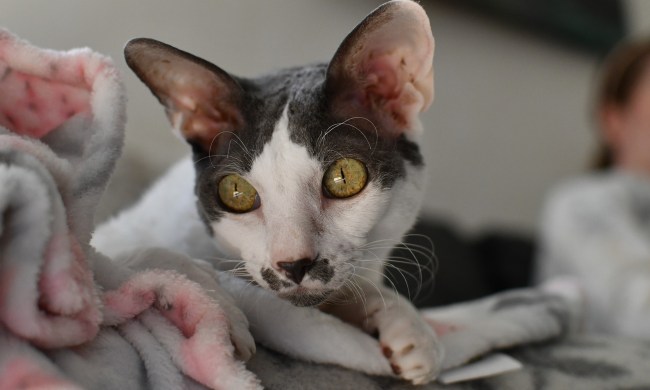You swore your foster dog or cat was a temporary resident in your home. Yet, you find yourself smitten by your foster pet. Their antics bring on all the belly laughs. Their snuggles epitomize the idea of “warm and fuzzies.” Suddenly, you’re coming around to the idea of making your foster pet a forever family member.
There’s a lighthearted term for this occurrence: Foster fail. Despite the word “fail,” the term refers to people giving a formerly homeless pet the best life. Deciding to adopt a pet you fostered can be rewarding. However, there are pros and cons worth considering first. Adopting a pet is a long-term commitment, and you want to ensure you and your potential foster fail are set up for success. Consider this guide a gut check before you adopt a foster dog or cat.
The pros and cons of adopting a foster pet

You may know of a “foster fail” situation or two. Perhaps a friend or family member has a former foster dog or cat they adopted. Remember that their story and situation may differ, and you’ll want to consider your capacity to care for a pet long term. These pros and cons will help.
Pros of becoming a foster fail
Foster fails are often genuine successes. Choosing to adopt a foster pet winds up offering so many benefits to a person and furry friend, such as:
- You gain a new friend. The world can be scary and lonely, but relationships provide a bright spot. Animals offer unconditional love and friendship.
- Deeper bonds. You don’t just add another friend to your life quantity-wise. The quality of your bond with your pet can also grow. As a person (or people) and pet get to know one another throughout a lifetime, you’ll connect on a new level. These connections can make everyone happier.
- Playmates. If you have other four-legged family members or children, the new pet can become a friend for them, too, providing entertainment, love, and enrichment. In the case of a child, the pet can expose them to the responsibility and love involved in caring for someone else.
- Memories. While pets aren’t genuinely with us on earth forever, they provide us with lifelong memories that will make us smile (one of those memories may be the foster failure story).
- Gratification. Watching a foster pet open up and become a family member can be satisfying. You deserve to celebrate this accomplishment.
Cons of adopting a foster pet
The drawbacks of choosing to adopt a pet you’re currently fostering aren’t as fun. However, as the adult human in the room, you’ll want to do so because the foster pet’s long-term health and happiness rely on you.
- Time. Perhaps you signed up to foster a pet during your slow season at work. If your “busy time” involves long stretches out of the office, the pet may not thrive. A pet sitter can help, but it is an expense.
- Money. Pet parents are responsible for vet bills (including unexpected ones, such as if a pet develops a chronic illness or eats something toxic). Not everyone can make this commitment.
- Poor fit for other pets. If your current pet and the foster don’t get along, making the situation permanent can be stressful and potentially physically dangerous for both animals (and you).
- Not enough space. The foster pet may do best with a backyard or larger space. In these instances, the best course is the selfless one: Allow the animal to go to a home that will keep them physically and mentally happy.
How to adopt a pet you’re fostering

Your best bet is to contact the rescue or shelter. Each will have different procedures for adopting a pet. Some may require you to sign on a dotted line and consider an optional donation. Others may have more rigid policies, such as:
- Home visits
- Call the vet to ensure current animals are up to date on vaccines.
- Adoption fee
- Waiting period (to ensure no one is going to claim the animal if they came in as a stray or that your commitment is solid)
- Confirmation you don’t plan to travel for a specific timeframe to help the pet get acclimated long term
- Registration for a dog training program
Closing thoughts

Fostering a pet can be rewarding. However, you may wish to turn your foster pet into a family member. Adopting a “foster fail” can be rewarding, providing unconditional love, laughs, memories, and playtime opportunities for you and your family.
Sometimes, letting a foster go to a different forever home is the best option. For instance, you may not have the time, space, or money to commit to a pet long term. While emotional, this choice is selfless. Managing expectations before fostering, connecting with fellow foster families, and asking the pet’s ultimate family to keep in touch with photos can help with the letdown. You may also find fostering again helpful when the time is right.




